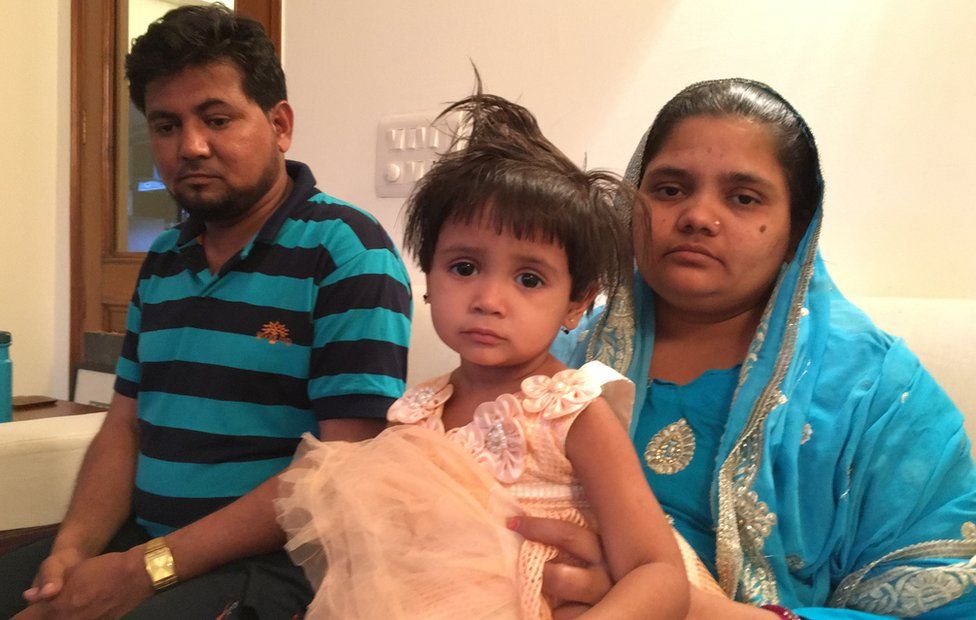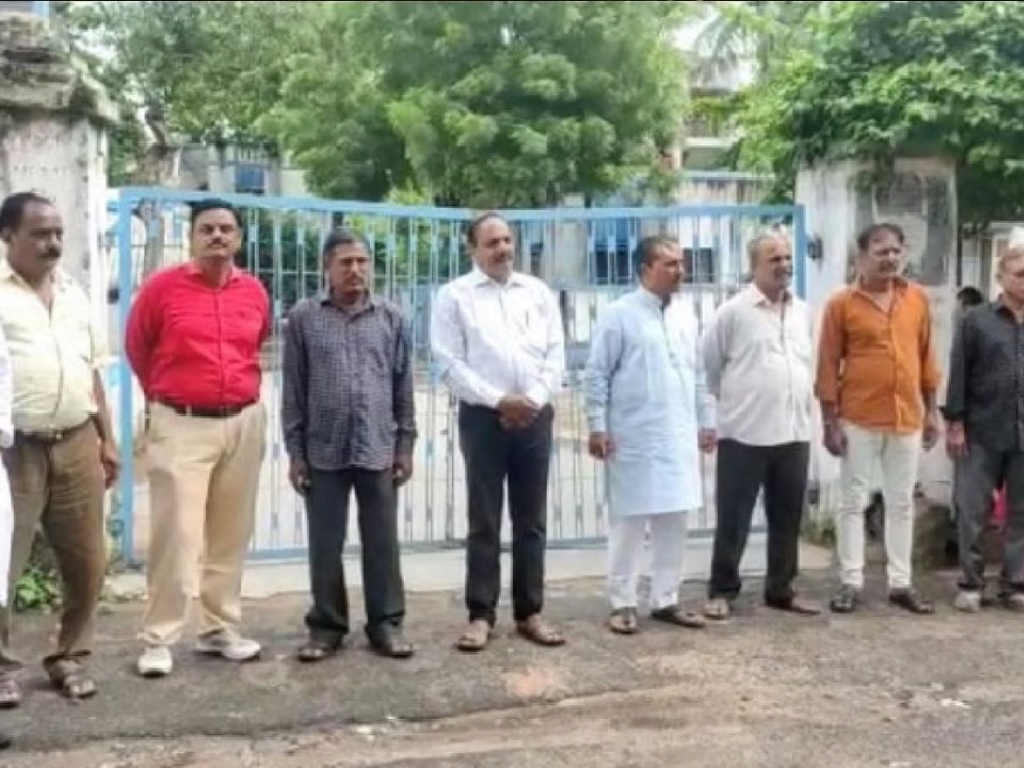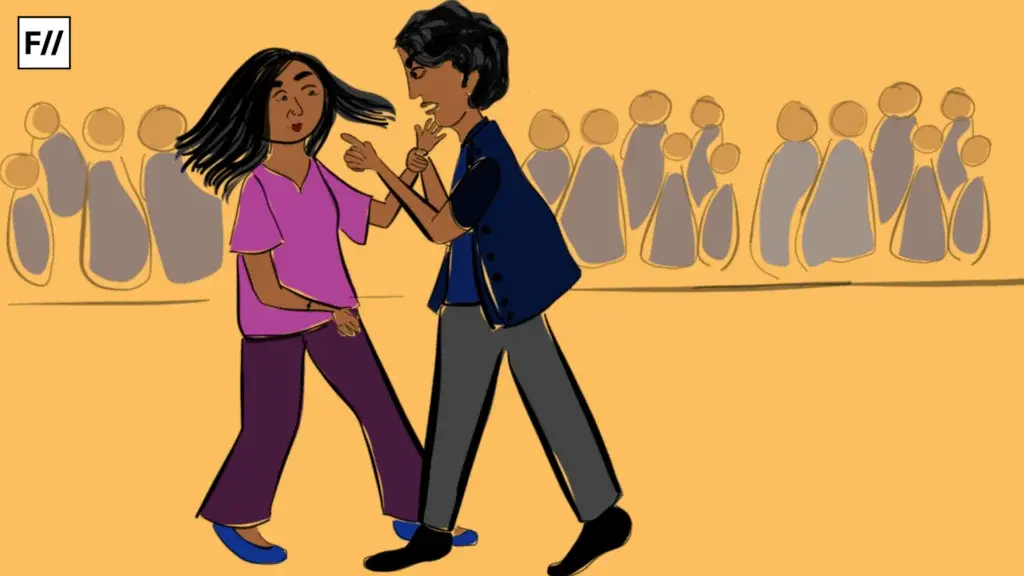As India celebrated its 75th Independence, 11 gang rapists charged with the horrific crime of raping a Muslim woman and brutally murdering seven others from her family during the 2002 Gujarat pogrom were freed on an outdated 1992 policy of remission.
The idea of remission in penal justice is old and has been celebrated by many in criminology, but in a State which is increasingly impinging on the social, political, and human rights of a religious minority, providing remission through a selective reading of musty laws to criminals acquitted for gangraping a woman from the aforementioned persecuted community has a much larger meaning—not just for the women of that community, but for the women of the body politic.
As a Muslim woman, I have been noticing how my rights are being impinged upon, and I have not been agitated enough to say something. But the recent release of these eleven gang rapists has put me in an extremely uncomfortable space. The feminist inside me is angry and worried about the Anti-Feminist Hindu Rashtra that is in the making.
Feminists and Women’s Rights activists within the country and abroad have for a long-time elucidated on how human societies continue to imagine men as the first gender and for women to be defined and understood as a divergence from men. Women’s bodies are appreciated under the male gaze, their gender roles are defined in contrast to men’s, and they are expected to adjust and fine-tune themselves according to the men in their personal, professional, and political lives.
Much the same is being expected from Indian women when Dwija Savarna Hindu men are released under remission despite being acquitted for a crime as heinous as the one committed on that ill-fated day.
It goes without saying that the current political regime is an outcome of the anti-Muslim hatred that has slowly infected the once secular fabric of the country. We know that this work has been decades in the making and possibly has been the product of not one but many political parties. But the current government’s rhetoric of retaining power in the country stems not from social development, equitable justice, or economic growth but only and only from dividing and ruling the nation on religious lines.

Ever since 2014, there have been multiple attempts, both successful and feeble to control the Muslim community through the bodies of their women folk. While this has been the case for the last 75 years, the recurrence of this tool to control the behaviour and attitudes of the citizens of the country has been much more frequent over the past eight years.
This moment in India is a dark hour, not just for Muslim women, honestly, it has been dark for months for us, but it is a dark hour for all Indian women. It is a despicable reminder that even 75 years later, we are unfree. The Hindu Rashtra is not a place which is going to safeguard the freedoms for which we are so vigorously fighting. It is not going to help us make this country a more gender-equal space; it is not going to ensure us our rights and liberties. It is simply going to reduce us to the imagination of a woman that is found in mythological texts written millennia ago.
Initially, the government banned the Triple Talaq. While one can delude themselves into considering this a step in favour of Muslim women and their agency in a marriage, this has left them in a much more precarious situation.
Organisations and lawyers working with women whose husbands have been jailed under this law state that this leaves the woman without any financial assistance from both the jailed man and his resentful family. And whatever hope she might have of getting an allowance from the Waqf Board, the reality is that the donations made to the Waqf Board are made under specific categories, and they can only be used to achieve those goals. And unfortunately, the Waqf Board has little donations to provide an allowance for women gulled via triple talaq. Realistically, the law ensures jail time for the man but provides no safety net for the sequestered woman.

Simultaneously the government, through their fringe groups and toxic masculinity, have problematised inter-religious marriage. Over here, although the body of the Muslim woman was not the site of control, instead, it was a site of vengeance. Hindu women’s bodies and their agency were attacked through this mentality by directly questioning their ability to make a thoughtful choice when choosing a life partner by creating laws on whom one should love.
Love-Jihad is not just a problem that arises on February 14th, but it’s a reality for those few couples in the country who continue to dare and marry under the Special Marriages Act. In more communal states like Uttar Pradesh and Uttarakhand, you have to inform the district collector 30 days in advance if you are getting married to somebody from another religion. In the notice period, anybody can appeal against this marriage, making it life-threatening for the couple to go ahead with their decision.
The recent Hijab-Ban has compounded difficulties for Muslim women by forcing them to choose between their educational pursuits and their religious identity. You can be only one, either an educated woman or a Muslim woman. Her choice of clothing has been termed “regressive”, and all Hijab-donning women have been denied their agency. This again has been a tool to repress the community’s religious expression and theistic aspirations, while the highest offices of the country continue to claim that their intentions are in the best interests of Muslim women.
And lastly, how can we forget the online selling of politically outspoken Muslim women via the Sulli Deals website? This event in isolation has been one which is a textbook example of how Muslim women will be viewed once all their rights have been snatched away—as objects of vulgar gratification for the good-mannered men of the Hindu Rashtra.
Gendered violence has been an old tool that warring sides have used against each other. There is nothing new that is happening in the country, in the sense that women have been violated, controlled, pushed into their households, and murdered in cold blood to repress and enslave a community. The message being sent out is that Indian Muslims must behave or otherwise. The only novelty in the conditions of the country is that we are doing this in the 21st century in a world where human rights exist.
Most of these issues mentioned above did not impel me to pin down my thoughts. As a Muslim woman, I have been noticing how my rights are being impinged upon, and I have not been agitated enough to say something. But the recent release of these eleven gang rapists has put me in an extremely uncomfortable space. The feminist inside me is angry and worried about the Anti-Feminist Hindu Rashtra that is in the making.
Virginia Woolf, in her seminal essay has pressed upon how important it is for women to have their own finances and a space to write for and about themselves. While some would argue this to be rather western ideation of women’s rights, the symbolism that Woolf is trying to bring out is that women must take the reins of their life into their own hands in all practical ways. If they are unable to do so due to the social position to which they belong, it should be the duty of a modern democratic State to ensure them that agency.
The recent release of these gang rapists has been a direct attack on this. The message being sent out is that it is sanskari (to say the least) for Brahmin men to rape Muslim women. In the Hindu Rashtra, which is slowly rising, brick by brick, you would be garlanded, fed sweets, and celebrated almost as a symbol of pride for violating the rights of Muslim women in the most despicable ways possible—the more disturbing, the better.
This move is not just a move which affects the safety of the Muslim woman’s body and the rights accessible to her under the Indian Constitution. It is a move which sets a very dark precedent for future generations. We are teaching our young ones and those yet to come that it is okay if you disregard consent, violate human rights, and use sexual violence to dominate women from certain communities, that somehow, this behaviour will be welcomed by the government and its people. The “sanskari” Dwija Savarna man would thus stand atop a violated Muslim woman with his 56-inch chest, basking in glory.
But what does it mean for the Hindu woman? Where does she fit into this body politics? If she stands and watches carefully from the corner, feeling safe with the knowledge that this can only ever happen to women who were born into Muslim families, is she being delusional? I would say one hundred per cent. Patriarchy has no religion, and neither is it barred by it.
There are certain sociological boundaries in society, crossing which create irreversible changes. If, as a woman, you accept the violation of another woman, albeit, from a different community, you are paving the way for some man to come and violate you in the future. You are building this idea that women can be treated this way; their bodies can be the playground for religious violence and politics of control. Women’s rights are always stamped out collectively. Your silence is not the nail in somebody else’s coffin but in yours.
And I ask this question, urgently, to all Hindu women who have ignored this news and pushed it under the carpet as yet another communal issue, do you think you will be safe in the Hindu Rashtra? Do you think these sanskari Dwija Savarna men would respect your rights, your consent, and your bodies? Are you not being reminded of that famous poem, First they came?
Also read: ‘Hindutva Feminism’ And Its Rhetoric Of Hatred & Exclusion
This moment in India is a dark hour, not just for Muslim women, honestly, it has been dark for months for us, but it is a dark hour for all Indian women. It is a despicable reminder that even 75 years later, we are unfree. The Hindu Rashtra is not a place which is going to safeguard the freedoms for which we are so vigorously fighting. It is not going to help us make this country a more gender-equal space; it is not going to ensure us our rights and liberties. It is simply going to reduce us to the imagination of a woman that is found in mythological texts written millennia ago.
As this piece ends, I have only one question to leave you with. Do you have an imagination and a spirit of your own? If you do, feel angry because this is not about a Bilkis Bano who has been wronged, this is as much about you.
Also read: Bilkis Bano’s Convicted Rapists Released, Welcomed With Garlands
Featured image source: Live Law




